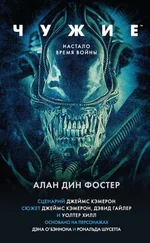“I don’t think the result, if your biologists do succeed, will justify my history. True, if successful it will mean that humans will continue to exist. But how human will they be? No matter how much ‘variation’ your scientists manage to induce by utilizing genetic material from deceased others, every individual that lives will still essentially be a variant of me. And believe me, I’m not the one I would have chosen to serve as the foundation for such a resurrection.”
Amusement crept into Kel’les’s reply. Even their humor was strenuously polite, Ruslan had found.
“We can only work with those poor materials that are available to us.”
Ruslan looked away, staring off in the direction of the pale blue sea. “Like I said, you’re going to do it anyway. You don’t need my cooperation. What do you want me to do—bless the results?”
“We want you to be happy. We want you to be—”
“Stop it,” he snarled abruptly. “Just stop it. Stop being so damn nice !”
Kel’les recoiled and, as much as it was possible to do so, an abashed Ruslan could see the mixture of fear and revulsion in the alien’s visage. A trio strolling nearby was visibly shocked at the un-Myssari outburst and accelerated their pace.
“What was that?” His minder was visibly unsettled.
“That was… being human. I hope it provided some insight. It should have. Look, I’m sorry. I just wish it wasn’t going to proceed like this. It’s not that I object per se to what your biologists are wanting to do.” He looked down at his hands: leather-brown, the veins prominent as a geological upheaval. “I just wish you had… better materials to work with.”
Poise recovered, Kel’les inhaled deeply. Beneath the bright red sweep of his overshirt, the conical upper torso where the tripartite lungs were situated barely heaved.
“I think you underestimate your cellular composition. With luck and time, you will become a multitude. And that is another reason why we wish, why we need, your cooperation. We are fairly certain that we can bring your species back to life. We can remake, according to your peoples’ classification system, Homo sapiens. What we cannot do is make a him, or a her, fully human . There are great quantities of historical material showing what human society was like, but that is not the same thing.” Ruslan saw that Kel’les was trying to be very specific without saying anything that might offend. S’he need not have worried. Ruslan was long past being offended by much of anything.
“What I am saying is that while we can reproduce human beings,” the Myssari went on, “what we cannot do is imbue them with humanness. In a society such traits are acquired from watching others of one’s kind, from one’s parents, from one’s peers and equals, and from education systems. We can re-create a little of that. But for the scientific venture to be a real success, we need you to instruct those we bring forth in how to be human.”
It was an eventuality Ruslan had already considered. “Once again, I think you’re working with the wrong material.”
Kel’les was not dissuaded. “Once again, I think you underestimate yourself. My superiors concur. In any event, you are all we have to work with. We will bring forth humankind again whether you cooperate or not. How human they will be is a decision that rests largely upon you.”
I’m not the person to be making such decisions, he thought irritably. There were better, far better, people than I . Unfortunately, Kel’les was right. The choice was up to him. Where humanity was involved, all choices were now up to him. He was torn. He was confused. He vacillated.
Kel’les had learned enough to recognize uncertainty. Straightening all three legs, s’he rose and stepped away from the flexing, tubular bench. Two of three hands gestured toward a nearby transport booth. “Come with me to Tespo. My superiors have been empowered to present something that may interest you.”
Ruslan looked longingly toward the horizon. “I would rather spend the afternoon at the beach.”
Kel’les’s head slowly spun a full 360 degrees, the eyes coming once more to meet Ruslan’s. It was a physical contortion that a human skull, set atop a fixed vertebra instead of a bony gimbal, could not hope to duplicate. Among the Myssari a full rotation was heavy with understated eloquence.
“You spend so much time in the water that I have to remind myself your species was not amphibious. Is there a reason other than simple pleasure that you so enjoy immersing yourself in another environment?”
Ruslan nodded as he rose. “It helps me to forget.”
Side by side, biped and triped started toward the booth. Noticing the human, a pair of unmated females gave them a wide berth.
“To forget.” Kel’les pondered. “Anything in particular?”
“Yes. How ignorant we were. Thousands of years of development, achievement, and supposed maturation, and in the end we were just as stupid as we were when we first came down out of the trees. We deserved to go extinct.” He looked sharply over at his friend. “As I’ve told you, I think we still deserve it.”
“Then, much as my kind strives always for consensus, I am afraid I and my colleagues must disagree with you. Provided we can manage the bioengineering, your species will continue to exist in spite of your distrust of the arrangement.”
Ruslan grunted as they approached the booth. The Myssari were going to do what they wanted to do no matter what he said. Politely, of course, the same as they did everything else. That much had already been made clear. Even if he killed himself, he could not stop them from preserving a humankind he was convinced was better off dead and gone. That was his one consolation. Soon enough he would be dead and gone. Despite their best efforts, he would not live long enough to see the results, or more accurately the consequences, of their strenuous efforts on behalf of his all-but-vanished species.
At least he had something to look forward to.
Ruslan knew that his kind had developed short-range teleportation, though the service had never been widely distributed on Seraboth. The energy requirements were enormous and an outlying world like his own had never been able to justify the expense to construct anything more extensive than an essential-services network. It had long since ceased to function and had entered into a state of serious decay by the time the Myssari arrived.
In contrast, analogous technology was readily available on many Myssari, Hahk’na, and other civilized worlds. It was omnipresent in Pe’leoek. But just as had been the case on human-settled worlds, the system functioned only over short distances. The energy required to sustain a transfer to another world or even a satellite increased exponentially with distance. To send someone to an orbiting ship or station, far less a moon, required an enormous amount of power. That did not keep Kel’les’s scientific superiors and others from striving to solve the problem. With any intelligent species it is failure, not success, that drives science.
Additionally, successful teleportation required direct line-of-sight between sending and receiving stations. While this offered hope for future transit across spatial distances, it ironically reduced its usefulness on planetary surfaces. A teleported individual or object could not be relayed. One had to enter a departure booth, step out of another, and enter a second booth to cover anything like a significant distance. The tall, needlelike towers that dotted the landscape were teleportation senders and receivers. By employing the technology, one could circle an entire world, but doing so required a significant number of stops, of repeated entries and exits.
Читать дальше
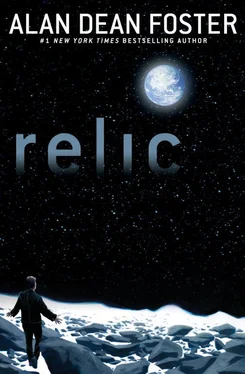
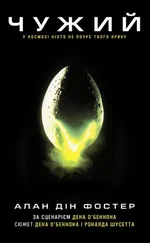
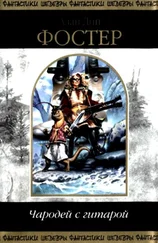
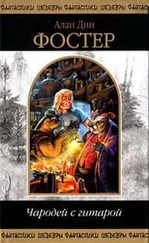
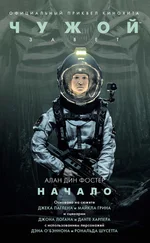
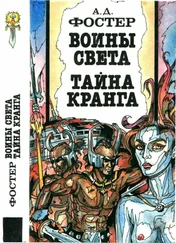
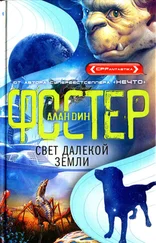
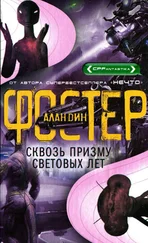
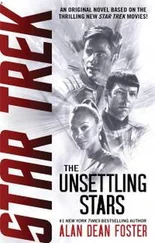
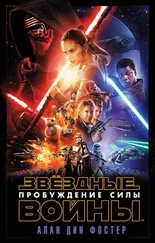
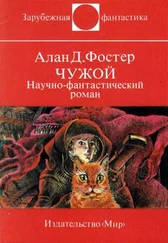
![Алан Дин Фостер - Чужой 3 [litres]](/books/420396/alan-din-foster-chuzhoj-3-litres-thumb.webp)
